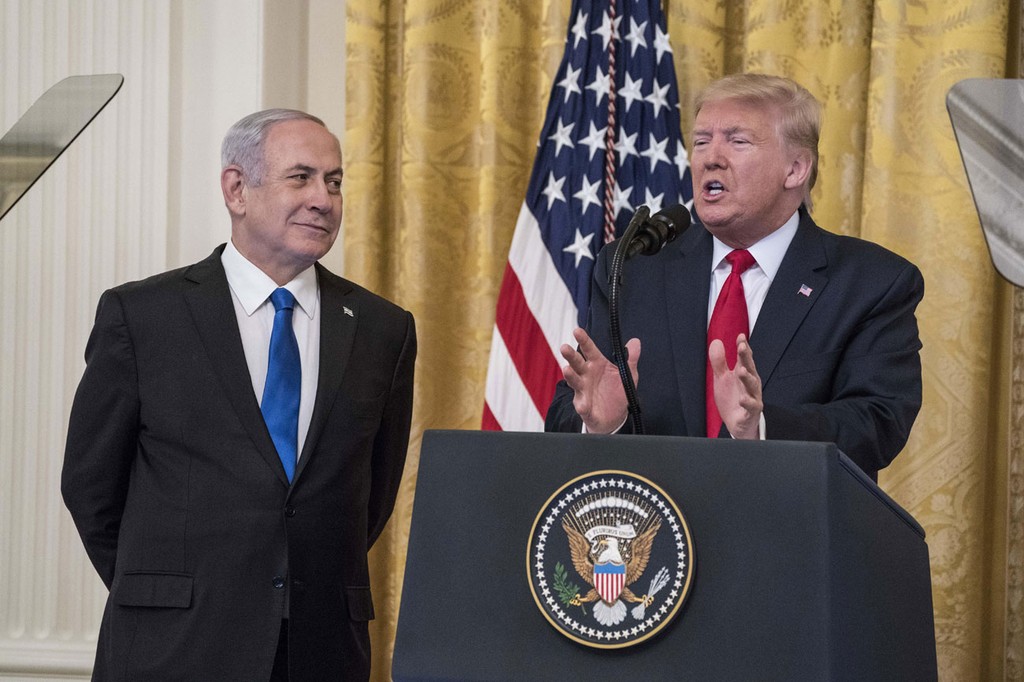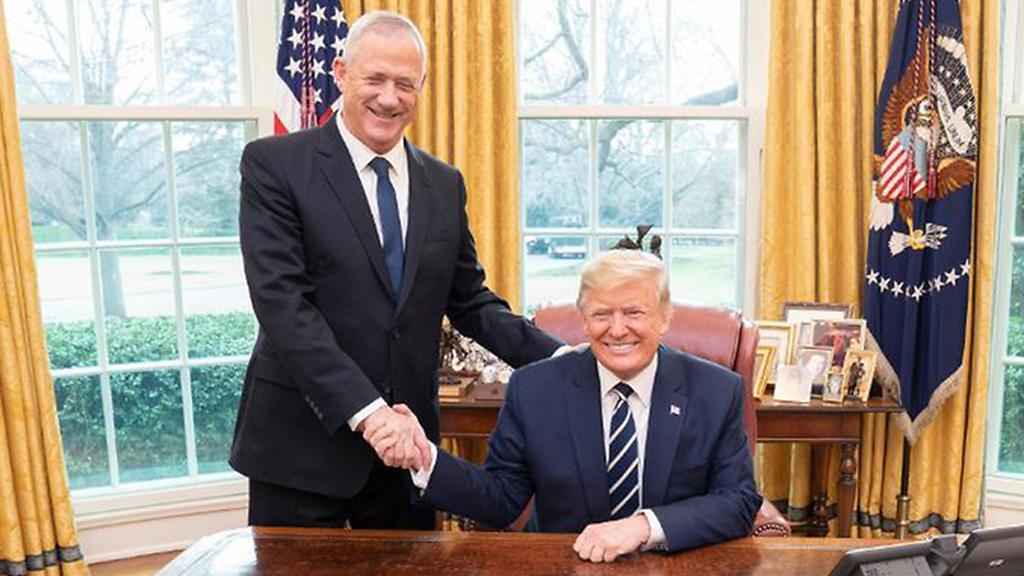Getting your Trinity Audio player ready...
Even if Benjamin Netanyahu fails to hold onto the prime minister's seat in March, the "Deal of the Century" is a formative event that has cemented his place in history.
His skills at diplomacy and his standing with the current White House, along with profound transformations in Israeli society (which he has driven), have led to a diplomatic big bang whose impact will shape the future of the region.
3 View gallery


Benjamin Netanyahu looks on as Donald Trump unveils his Mideast peace plan at the White House
(Photo: Getty Images)
This is also due to the emptiness of the so-called alternative to Netanyahu: Blue & White is not fighting Trump's plan, which leads to a binational state and apartheid rule in the West Bank. It is still busy trying to debate whether a criminal defendant has the legitimacy to lead Israel down this path.
In this context, for a public yet to truly comprehend this multi-layered (security, diplomatic and even - excuse the hyperbole – moral) nightmare, the March 2020 elections are far less fateful than who sits in the Oval Office next.
The question of "Bibi or not Bibi" may be essential to the future of the rule of law within the Green Line borders, but beyond them it is really not the issue.
As Donald Trump himself said, both Netanyahu and "the General" (Blue & White leader Benny Gantz, who made his own pilgrimage to the White House this week) agree with the measures that will drive a massive nail into the coffin of the two-state solution.
In fact, as political pundit Amit Segal repeatedly points out in his clear and concise diagnoses of reality, we are in unprecedented situation: the U.S. administration is further right than Netanyahu and friends.
In fact, it is Washington that is actually pushing Jerusalem to extend its sovereignty to a territory where until January 2017 any extra settlement bathroom elicited a cry of alarm in the State Department.
That is why the realists on the Israeli right, who understand that this proposal for a "State of Palestine" is a cruel parody of Palestinian national aspirations, are rushing to establish facts on the ground.
With the exception of Netanyahu's acolytes, who insist that he is the only one who can lead the country, the right-wing has internalized that the real test is not on March 2, but rather on November 3, when America votes for its next president.
Assuming that Trump is not ousted by the Senate by then, the American public will be asked to decide whether to give him another term in office.
Presumably, the developments in the Middle East will help him with the Evangelical voters, who got everything they wanted on Tuesday - and then some.
Trump will, quite rightly, portray his "Deal of the Century" as further implementation of his campaign promises. And indeed, the Trump administration has turned out to be far more effective and systematic than the president's capriciousness would have us believe.
The Democratic Party will of course reject the plan outright. Leading candidates from the center (Joe Biden) and leftwards (Bernie Sanders) have already clearly expressed their position: "Peace" is not a factor in this plan, which could even mean farewell to a Jewish and democratic State of Israel.
So, regardless of the possibility of the center forming the next government in Israel, the moment of truth will be delivered not by voters in Tel Aviv or Tiberias, but by those in the U.S. swing states.
Only in November will we know whether we have four years in which we can potentially drag ourselves back from the point of no return.
Just as Netanyahu wished to see Mitt Romney elected in 2012 and Trump in 2016, what remains of the Israeli left is praying for an American political upheaval.
That's how catastrophic the situation really is.



